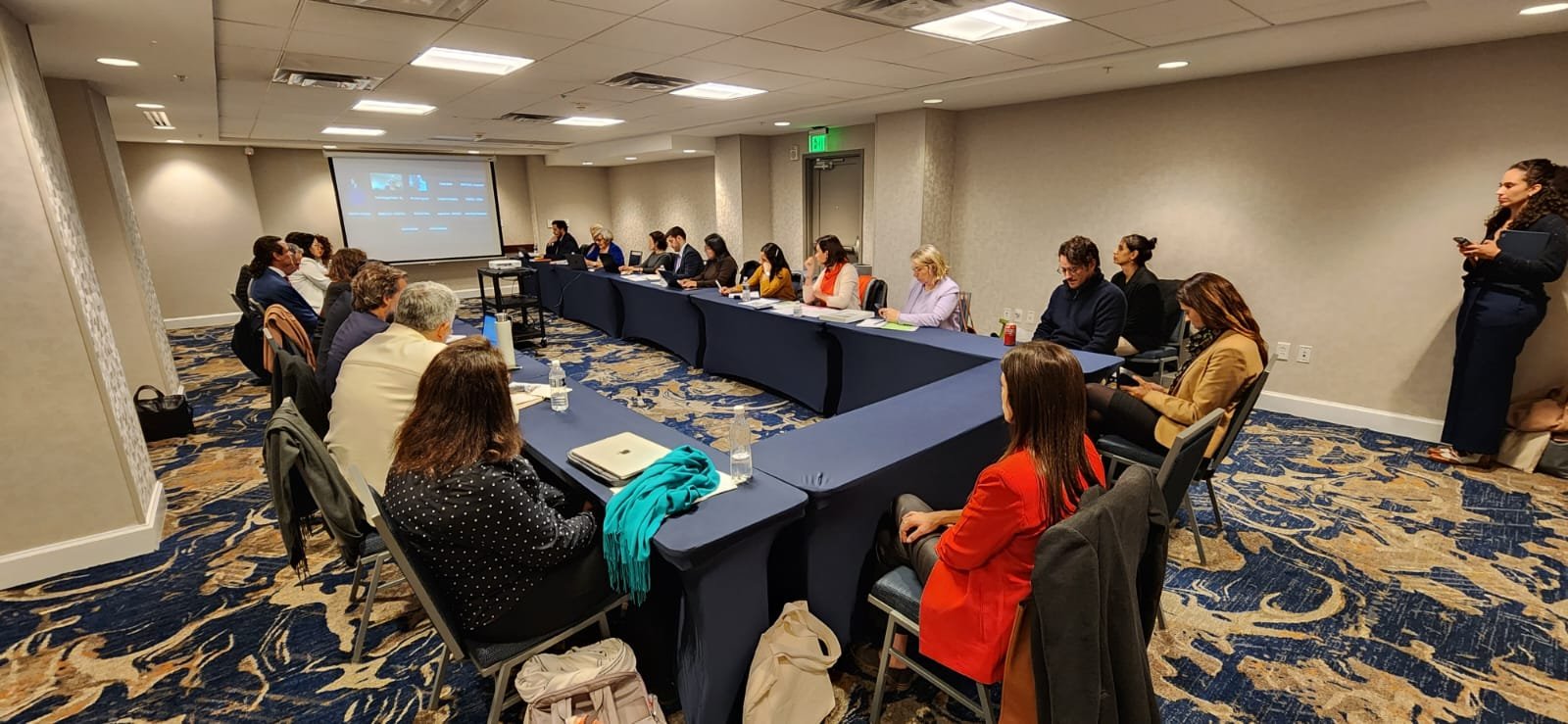Artistic Freedom Protects Everyone's Freedom
Guilherme Cezar Coelho is a film director and founder of Samambaia.org, a non-profit organization that supports Washington Brazil Office (WBO) and Brazilian Movement for Freedom of Artistic Expression (MOBILE). This article was written by Coelho especially for issue 112 of the WBO weekly newsletter, dated April 12, 2024. To subscribe to the newsletter, enter your email in the field below.
Amid attacks on democracy, science and progress, guaranteeing freedom of artistic expression is fundamental for a better world. The Washington Brazil Office (WBO) has the opportunity to guide this discussion internationally.
An invaluable contribution that already exists is the work carried out by the Integrated Brazilian Movement for Artistic Freedom (MOBILE). An initiative of Brazilian civil society, the movement gathered and analyzed cases of censorship of artists in Brazil between 2016 and 2022, amounting to almost 300 well-documented cases.
Expressing one thing through another – that is, using metaphors, analogies and symbols – is perhaps the greatest human invention, as it helps us understand and transform reality, guiding our feelings about the world.
Freedom of artistic expression can be understood, metaphorically, as a society's immune system. Without its full functioning – in this case, without the absolute freedom to create, express ourselves, give ideas and think critically – we become ill. "Who does not communicate, will be in trouble."
This is what we see today in dictatorships, like the Chinese one, where contradiction is increasingly restricted, and individual expressions are constrained by the arbitrary standards of their political leaders. No wonder, bad economic decisions are being made, and there is already talk of a post-China world. In other words, the threat of Chinese dominance is no longer a thing of the past. Other examples of disastrous dictatorships abound.
In Brazil, Mobile data shows cases of censorship or intimidation against artistic expressions in all regions of the country. The cases diod not stop during the period of the Temer and Bolsonaro governments. The different faces of censorship continue to show themselves across Brazil.
Recently, Jefferson Tenório's book, O avesso da pele (The Dark Side of Skin), winner of the Jabuti book prize, was banned in public schools in three Brazilian states. In Niterói, a show by singer Johnny Hooker was canceled due to mobilizations following statements by the singer in 2018 against the censorship of a theater play.
Meeting of representatives from Mobile and other Brazilian organizations with rapporteurs from the Inter-American Commission on Human Rights to discuss regional parameters for defending artistic freedom, in November 2023
It is worth reflecting here on what is legitimate to criticize and combat – and the need to guarantee free expression by anyone. Here, the focus is specifically on artistic expression, which is the most daring as a metaphorical way of talking about the world. Perhaps it is also the most powerful way to transform it. That's why, perhaps also, dictatorships and imbeciles hate art.
“The world is what matters,” pontificated Ludwig Wittgenstein. That is, the world is what we write, sing and tell about it – about ourselves. Artists invent life because they invent the representation of life; they invent how we experience the world.
Expressing one thing through another is exactly the artist's job. Thinking about the world and our subjectivities, in a metaphorical, analogous or symbolic way, is what we expect from art as a human amalgam, giving us a mental map on how to live. By representing the world, and representing herself in the world, the artist captures – and at the same time – creates the world. Guaranteeing this freedom is guaranteeing the future, because with freedom of artistic expression we continually invent it.
The WBO is now at the center of this debate, seeking proposals for international legislation in defense of freedom of artistic creation. It seeks a legal framework that protects creators and their works against attacks from current governments, especially in a world experiencing a surge in extremism.
To achieve this objective, we need to encourage the exchange of information, intensify the reporting of violations, and outline paths for the formulation of international principles that legally and economically protect artists, cultural professionals and arts groups and collectives.
As the WBO has pointed out, among the different types of threats detected are state censorship, the political and moral strangulation or the directing of public resources to finance the sector, and public campaigns of persecution and defamation of cultural professionals by political parties, groups, religious organizations, and individuals from civil society.
This is where the contributions from the censorship cases gathered by the Integrated Brazilian Movement for Artistic Freedom (Mobile) come into play. We must join forces.
I echo the words of Paulo Abrão, the executive director of the WBO: “Artistic and cultural expression must be a field of broad freedom and, for this to happen, it is necessary to adopt parameters that establish and protect the sector in the face of harassment that is taking place, especially with the emergence of new authoritarian governments.”
We need to structure international norms, guidelines, and parameters and begin to work on them first within the scope of the Inter-American Human Rights System, and then advance at a global level. Let us take as an example what has already happened in a positive way with the advancement of norms, recommendations, and jurisprudence in matters of freedom of journalistic and press expression within the Organization of American States.
When building this legal framework, we must think about the structuring principles regarding the rights of artists and cultural agents, with the objective of equality of gender, race, and respect for diversity.
We need legislation that provides protection for copyright and intellectual property in the face of generative artificial intelligence and new technologies and that definitively protects artists from repression by state and non-state agents.
There is a lot to do, with creativity. Creating a system to protect freedom of artistic expression is a guarantee of a better life for everyone.


